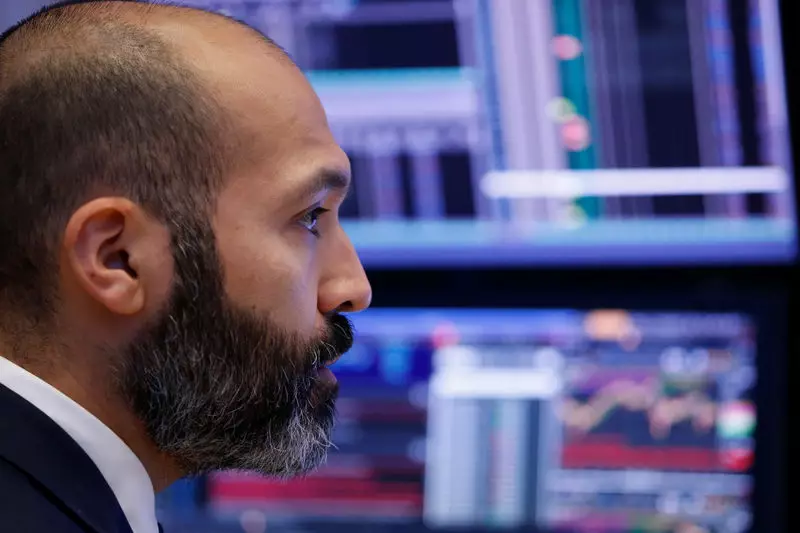The downfall of FTX, once hailed as a promising player in the cryptocurrency space, has left scars that will not easily fade. At the epicenter of this disaster is Caroline Ellison, the former CEO of Alameda Research and a key figure in the FTX saga. As Ellison prepares for her sentencing in the wake of pleading guilty to multiple charges of fraud and conspiracy, the implications of her cooperation with authorities cast a shadow over the entire cryptocurrency sector. With her former partner, Sam Bankman-Fried, now serving a substantial prison sentence, the financial world is watching her case with bated breath.
Ellison, at just 29, has found herself ensnared in a web of deceit that has resulted in an estimated $8 billion missing from customer funds following FTX’s catastrophic collapse in November 2022. Her confession — specifically her acknowledgment of seven felony counts — signifies a systemic breakdown not only in corporate governance but also in the ethical responsibilities of those who manage significant financial assets. The sentencing hearing scheduled before U.S. District Judge Lewis Kaplan is expected to shed light on the extent of leniency she might receive due to her cooperation with prosecutors.
As is often the case in high-profile criminal trials, the degree of cooperation with law enforcement can significantly mitigate a defendant’s potential penalties. Ellison’s legal team has strongly argued for no prison time, banking on her extensive assistance — including over 20 meetings with prosecutors — to embolden their case. This cooperation was pivotal in piecing together the intricate puzzle of FTX’s collapse and Bankman-Fried’s alleged misconduct.
Delving deeper into the nuances of the case, it’s essential to understand the implications of Ellison’s remorse. Prosecutors, in their filings, have emphasized her candid acknowledgment of wrongdoing, contrasting her behavior with that of Bankman-Fried, who vehemently maintained his innocence throughout his trial. Such distinctions play a critical role in how legal outcomes unfold, painting a complex picture of culpability and ethical responsibility.
One can’t help but draw comparisons between Ellison and Bankman-Fried. While Bankman-Fried faces a 25-year prison sentence for orchestrating what prosecutors have labeled one of the largest financial frauds in U.S. history, Ellison’s probable leniency raises questions about accountability in white-collar crime. Despite her considerable guilt and involvement in the misappropriation of funds, her battle for forgiveness illustrates the potential inequalities in the justice system, particularly for those who cooperate with the prosecution.
Ellison’s defense hinges on the concept of her being a mere cog in a much larger machine. Her assertion that Bankman-Fried directed fraudulent activities raises crucial questions: to what extent can a subordinate deflect responsibility in the face of senior management pressures? This defense also opens a window for a broader examination of corporate culture and its inherent vulnerabilities — a narrative that resonates strongly in today’s tumultuous financial landscape.
The case of Ellison and Bankman-Fried extends beyond individual accountability; it raises fundamental concerns about the structural integrity of the cryptocurrency industry as a whole. FTX was once viewed as a bastion of stability in a high-risk environment filled with scams and volatility. However, the collapse has highlighted significant lapses in regulatory oversight and ethical business practices, igniting debates about the future of cryptocurrency regulation.
The aftermath of this financial collapse has prompted calls for more stringent regulations and the establishment of accountability frameworks for cryptocurrency exchanges. As the industry continues to evolve, the FTX debacle serves as a cautionary tale underscoring the need for transparency and rigorous compliance in a sector often criticized for its lack of oversight.
As the clock ticks towards Caroline Ellison’s sentencing, it is evident that her case encapsulates much more than one individual’s fall from grace. It is a point of reckoning for the cryptocurrency industry, policymakers, and investors alike. The ultimate verdict on her accountability will likely reverberate throughout the financial world, potentially reshaping perceptions and regulations in a rapidly evolving market. The ripple effects of this case have only just begun to unfold, serving as a stark reminder of the crucial interplay between ethics, responsibility, and law in the pursuit of financial ambitions.

